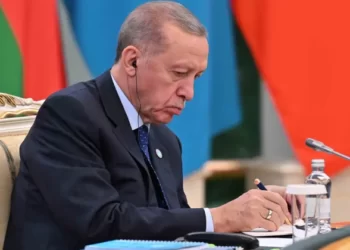A brewing dispute between Ghana’s new government and the African Export-Import Bank (Afreximbank) is drawing continental and global attention as questions surface over the bank’s push to be classified as a “preferred creditor” – a position typically reserved for heavyweight institutions like the IMF and World Bank.
Bright Simons, has made a public analysis of the matter, reflecting growing concerns about governance gaps, since the clash reveals deeper tensions about Africa’s growing ecosystem of multilateral development banks, and the governance standards surrounding their operations.
“There is really nothing that stops the African member governments of Afreximbank from explicitly enshrining in a regional agreement provisions granting preferred status”
Bright Simons, Vice President Of IMANI Africa
Afreximbank, which is owned primarily by African governments, has positioned itself in recent years as one of the continent’s key lenders, offering emergency loans to struggling economies, especially during the COVID-19 pandemic and the “economic fallout from the Russia-Ukraine war.”
Simons pointed out that in 2022, as Ghana stood on the brink of financial collapse, the bank extended a $750 million facility under a special program designed for countries affected by the global economic downturn.
Critics, however, questioned both the opaque terms of the loan and its detachment from any broader economic “recovery framework.”

At the heart of the standoff lies a critical question Simons pondered: does Afreximbank qualify for the kind of treatment typically reserved for the IMF, World Bank, or the African Development Bank (AfDB)?
These institutions have long benefited from what is known as “Preferred Creditor Status,” meaning when countries default or restructure their debts, these lenders must be paid in full unless they voluntarily waive their rights, as they did under the Highly Indebted Poor Countries (HIPC) and the Multilateral Debt Relief Initiative (MDRI) programs decades ago.
Supporters of Afreximbank say the “Preferred Creditor Status is not something captured in international law but simply a matter of market practice,” and thus any collective agreement by countries could grant it such status.
Simons emphasized that precedent and mutual agreement – not legality – form the basis for the recognition. Yet, for critics and rival Multilateral Development Banks (MDBs), Afreximbank’s financial model complicates that ambition.
Its loans often carry commercial-level interest rates and are not always tethered to transparent public finance reform programs.
In Nigeria, around the same period as the Ghana loan, the bank offered financing backed by future oil shipments at interest rates near 12 percent, raising further doubts about its claim to non-commercial classification.
International And Local Resistance
The IMF, AfDB, and even Ghana’s own administration have pushed back against Afreximbank’s demands. Their argument hinges on the belief that the bank’s “commercial features compensate it adequately” for risk and therefore it should not receive repayment privileges over other creditors.

The contention, according to Simons, is rooted in fears that if Afreximbank is granted such status, “everyone will also claim preferred status and restructuring as a way out for countries on the brink of bankruptcy… will become untenable.”
Indeed, the AfDB’s own privileged status has never been in doubt, partly because it adheres to stricter transparency and policy alignment requirements. Simons emphasized that if Afreximbank wants similar treatment, “transparency and policy governance are very critical.”
The conversation also revives concern over the legal foundations of preferred creditor arrangements. Institutions like the European Investment Bank and the European Stability Mechanism enshrine such privileges within their founding treaties. The same cannot yet be said for Afreximbank.
As Ghana continues its fiscal consolidation under the leadership of the new government, managing creditor relationships remains critical. Restructuring efforts are central to restoring economic stability after the debt crisis of 2022.
Giving Afreximbank preferred status may set a precedent that complicates these efforts, not just for Ghana but for other African states navigating similar debt burdens.
The current impasse reflects a broader African dilemma: whether to demand stronger standards of accountability from homegrown financial institutions or grant them latitude in the name of continental financial sovereignty.
For now, Ghana’s resistance, backed by the IMF and AfDB, signals a reluctance to compromise on established norms – even as the architecture of global and regional finance continues to shift.
READ MORE: School Bus Blast In Pakistan’s Balochistan Kills Six




















